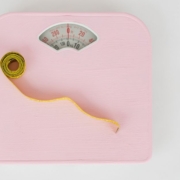Teaching Your Child the Art of Psychological Flexibility
Have you ever watched what happens when your child or teen is upset, sad, or challenged?
Sure, they might become more emotional. We’ve all seen that happen. Perhaps they want to argue, become defensive, or give up, deciding that they ‘can’t’ do whatever it is that’s frustrating them.
As parents, we see the behaviour, feel annoyed by it, and in many cases we try to shut it down. Maybe we argue with our child. Or we try to tell them how to fix whatever the problem is that they’re facing. These are standard responses to challenging children.
Research has shown that many parents are, ironically, just as inflexible as their kids, particularly when it comes to challenging behaviour from their children. We don’t like it and we want it to stop. Now. (More on that soon.)
But if you observe carefully, you’ll notice that when your child is upset, sad, or challenged, there’s a shift in their thinking that leads to that shift in behaviour that bothered you so much. Their thinking has become inflexible, rigid, or avoidant. As that occurs, you’ll find that they’re not open to hearing what you have to say. They’re closed. Their mindset is fixed and they cannot be swayed. We say that they’re being “stubborn”.
You’ve been there. It’s like your child has their fingers in their ears and is yelling “lalalala” while you try to logically point out where they’ve gone wrong. Your child won’t hear it. They’re convinced that they’re right. They might have been upset, but they are making it clear that they don’t want your help.
This is infuriating for us. We have answers! We can help! We can fix this!!!
There’s a reason this happens. Big negative emotions shut our thinking down. And our kids are having that big emotion, so their brain literally starts to operate in fight/flight mode. This leads to a less effective response to challenge.
As frustrating as this is, we all do it from time to time. As adults we often find ourselves in a fix but we won’t listen to anyone else. We become just as stubborn, rigid, and inflexible as that child we were just thinking about.
Studies suggest that often our kids learn this inflexibility from us. In a 6-year study of teenagers and their parents, University of Wollongong researchers found that the more rigid and authoritarian we are as parents, the more likely it is that our teens will demonstrate precisely the inflexibility that drives us mad.
How do we help our children overcome that rigid, inflexible thinking so that they can be psychologically flexible?
Answer: We teach them the following three ideas:
- Step back.This allows some emotional distance and can help your child be calm. Remember, high emotions, low intelligence. By keeping emotions level, thinking improves.
- Shift perspective. Help them see things from different views so they can recognise their perspective isn’t the only one.
- Emphasise values. Teach your child to respond to difficulties based on what they value rather than how they feel.
This kind of thing is tough for our kids.
It requires that they step back from what they want and feel in that exact moment, and take a longer-term view. It requires that they are mindful. But it works. For us. For teens. And even for younger kids.
To teach our children, it simply requires that we do the same three things. When we feel upset we step back, shift perspective, and act based on our values rather than our feelings.
Psychological flexibility is at the heart of good mental health and resilience. Studies show that it lifts children’s vitality, curiosity, self-reliance, confidence, creativity, meaningful experiences and the ability to master challenges. It even speeds up recovery from stressful events and helps kids dealing with chronic health conditions.
On the other hand…
When kids lack psychological flexibility, they experience more anxiety, depression, overall pathology, poorer work performance, a reduced ability to learn, substance abuse, a lower quality of life and other negative outcomes. In other words, it can affect almost everything in their lives.
Psychological flexibility is something that our children will almost certainly need help with. They need us to help them be calm, think broadly, be curious, take the perspective of others, recognise that they have choices, and then move towards values-based actions. It sounds complicated. Perhaps it is a little. But the results are important: children develop resilience. Why? Being psychologically flexible means acting in good ways when times are tough. It is a process that builds self-efficacy and self-control. It leaves a child feeling that they have choice and autonomy, can behave in competent ways, and build relationships in positive ways. These are the building blocks of motivation and serve as crucial foundations of wellbeing.
Article supplied with thanks to Happy Families.
About the Author: A sought after public speaker and author, and former radio broadcaster, Justin has a psychology degree from the University of Queensland and a PhD in psychology from the University of Wollongong.


